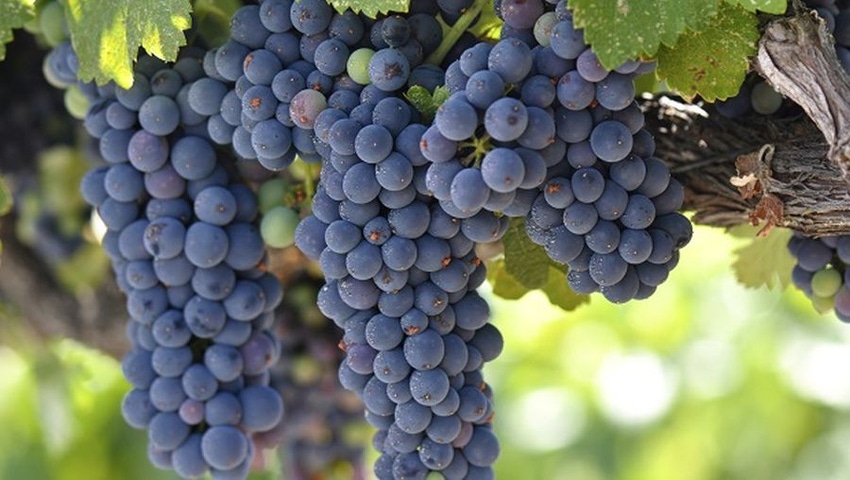Phytochemicals from grapes may have a positive effect on the immune system of obese individuals by reducing certain types of fats in their blood linked to heart disease and lower the risk of infection, according to a new study published in the AgResearch Magazine. The findings are important in that nearly 79 million Americans are classified as obese, which increases their risk of developing heart disease, diabetes, and bacterial and viral infections.

Phytochemicals from grapes may have a positive effect on the immune system of obese individuals by reducing certain types of fats in their blood linked to heart disease and lower the risk of infection, according to a new study published in the AgResearch Magazine. The findings are important in that nearly 79 million Americans are classified as obese, which increases their risk of developing heart disease, diabetes, and bacterial and viral infections.
In previous research, molecular biologist Susan Zunino, with USDA’s Agricultural Research Service’s Western Human Nutrition Research Center (WHNRC) in Davis, California, was the first to show a link between eating grapes and preventing Type 1 diabetes in mice
Hospital and clinic documentation of viral and bacterial infection has shown that obese people are at a much higher risk for developing infections after surgery. “During the H1N1 influenza pandemic in 2009, many more obese individuals than people of normal weight were admitted to hospitals because they could not overcome the virus," she said.
For this study, 24 obese individuals drank either a mixture of water and grape powder made from freeze-dried table grapes or a placebo twice a day for three weeks. The two groups switched to the opposite mixture for the next three weeks. Blood samples were analyzed to measure the effects of grapes on blood lipids (fats), blood markers of inflammation and cells of the immune system during the study. Compared with the placebo group, the grape powder group had reduced plasma concentrations of low-density lipoprotein (LDL), known as “bad" cholesterol, which is associated with heart disease.
When the researchers stimulated immune cells from blood with a bacterial component called lipopolysaccharide, they found a 14- to 17-percent increase in the production of proteins—cytokines—that are instrumental in fighting off infections. In previous research, Zunino discovered that one of the same cytokine proteins was produced when obese individuals consumed strawberry powder.
Obesity leads to more inflammation in the body, therefore, more studies are needed to find out if the increase in cytokine production, after grapes and strawberries are eaten, contributes to more inflammation or is beneficial in reducing infections, Zunino said.
The researchers found a similar occurrence in a study with strawberries. One of the same cytokine proteins was produced when obese individuals consumed strawberry powder. People who consumed either grape or strawberry powders in two separate studies had increased production of cytokines in response to the bacterial component.
##
.
Zunino, who works in the WHNRC’s Immunity and Disease Prevention Unit, is studying phytochemicals to determine whether they could help obese people fight off infection.
“Documentation of viral and bacterial infection in hospitals and clinics has shown that obese people are at a much higher risk for developing infections after surgery," Zunino says. “During the H1N1 influenza pandemic in 2009, many more obese individuals than people of normal weight were admitted to hospitals because they could not overcome the virus."
About the Author(s)
You May Also Like






.png?width=800&auto=webp&quality=80&disable=upscale)